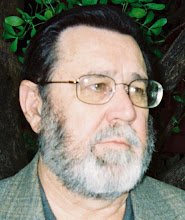Neoconservatism: An Obituary for an Idea, by C. Bradley Thompson, with Yaron Brook, is a fascinating exposition of the essence, history, and philosophy of the movement or idea. (And I'm only a third into it.)
What may be characterized as neoconservatism is the purposefully nebulous intellectual movement which has largely consumed the conservative intelligentsia. So-called compassionate conservatism. Socialism in capitalist clothing. A pragmatic approach to the welfare state. Capitalism with a heart. Lip-service capitalism. Socialism without totalitarianism. Or perhaps, “A new spectre is haunting the world?” Neoconservatism requires no formal conspiracy, only general acceptance of a philosophic approach.
A philosophic approach counter to the Enlightenment which gave birth to the founding fathers and America. Rejection of the idea that all men are capable of reason and self-improvement. Rejection of reason and principle in favor of emotionalism and “prudence.” Neocons, while inconsistent, effectively reject the Declaration of Independence. Not in an implied, confused way, but explicitly. Men do not have natural rights; such as, life, liberty, or pursuit of happiness. The purpose of government is not to protect individual rights, but to ensure that men recognize the duties of serving the “public good.” Only then will they be happy.
Still, neocons recognize that forced socialism fails, producing poverty, misery, slaughter, and oppression. Thus, some measure of capitalism must be preserved to generate the wealth needed for actual public good, for redistribution by the welfare state.
But capitalism is founded on principles of self-interest and individual rights. So, neocons seek pragmatic compromises, some fantasy mixture of limited freedoms and regulations, to be guided by an elite in the “art of politics” toward the “greater good.” (As both Dante and Ayn Rand have observed, compromisers, betrayers of principle, belong to the lowest depths of hell.)
The goal of government, of the elite, of these real life versions of Ayn Rand's fictional Ellsworth Toohey, is to promote a modern version of Plato's noble lie, founded in unquestioned, traditionally altruistic, religious beliefs – a unifying “secular religion.” All the while, politically, legislatively nudging and guiding the culture in properly collective directions.
The fact that neoconservative thought, by its nature, cannot be a unified, organized movement serves to nullify its goals, but not its cultural, political damage – as promoters engage in intellectually confused and conflicting policy urgings and moral critiques – picked up by the journalistic and entertainment media and universities.
Neocons argue that principles of individual freedom lead to false virtues of self-interest, degenerating into hedonism (mindless gratification, greed, and entertainment). Thus, they attack a straw man, following the tradition of religious and altruistic thinkers. Men who can see no morality in reason or the “self,” but only empty degradation. (Themselves, the elite, the transcendentally enlightened, excepted.)
Ironically, the founders of this philosophic movement claim an answer to Nietzsche and Heidegger, but effectively only politicize nihilism and existentialism. More ironically, the neocons formulated their views at the time Ayn Rand was providing the antidote to their straw man: a validation of reason and moral values, which must be grounded in man's individual nature and self growth. Their evasion of Rand is grounded in their evasion of reason as a virtue.
The “godfather” of neoconservatism, Irving Kristol, enjoyed a cultural boost, and the neocons have continued to denounce Rand. Rand's Objectivism is now gaining wider distribution and supporters. Both Rand and Kristol are dead, but the cultural battle is well joined. Hopefully, consistent Objectivism will write the obituary of inconsistent, pragmatic neoconservatism.
Other fascinating works in this vain, written for the general reader and tracing the history and philosophic developments which are confusing our modern culture, are Peikoff's “Ominous Parallels” and Hicks' “Explaining Postmodernism: Skepticism and Socialism from Rousseau to Foucault.” All highly recommended.


No comments:
Post a Comment